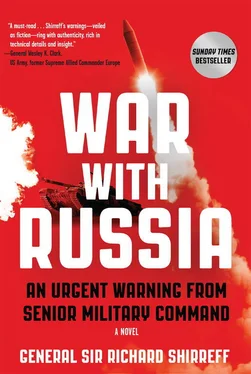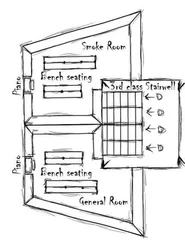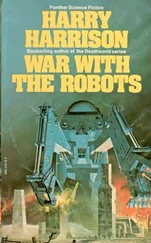“Aye aye, Sir,” responded the Duty Officer.
Bush put down the phone by his bedside and pulled on his working rig of dark-blue cotton, flame-retardant trousers, and shirt with the three gold rings of a commander on his epaulets. Kissing his still-drowsy wife farewell, with the promise that he’d be back to sort out his kit, he’d turned off the light and yet hesitated for a moment until he saw her roll over and, doubtless, go straight back to sleep—like him, she had long ago learned to put up with these late-night interruptions and frequent absences.
Thank God for Jacky , he thought to himself with a deep surge of love and affection. She had not volunteered for the Navy, but without her long-suffering selflessness and countless others like her, where would the Navy be? He let himself out of the front door of their small, three-bedroomed, semi-detached married quarter without disturbing the sleeping boys and got into the ancient VW Polo they were just able to afford as a second car, before driving the twenty minutes into Portsmouth Naval Base.
And now, as he surveyed the deck of Queen Elizabeth —“longer than the Houses of Parliament” as the official blurb liked to emphasize, and the pride of the Royal Navy—Bush was satisfied that preparations for putting to sea were under way as effectively as they could be. “Lucky we were preparing to deploy to sea next week anyway,” he muttered to himself, as he watched dockside cranes lifting palleted loads of supplies, ammunition and all the materiel of war onto trailers on the flight deck. From there they were pulled by small tractors onto the elevators and lowered to the hangar below to be stowed.
Quite where some of this war materiel should be stowed, and in what order it would be needed, would require guesswork, experience and common sense. However, Bush knew that nearly all the more senior officers, and certainly all the senior ratings, would have had some experience of war-fighting conditions in Britain’s many adventures in the Middle East, which meant there was no shortage of the latter two on board the vast ship.
He glanced down to the quayside where soldiers of the Royal Artillery’s Commando regiment, tough, hard-looking men in their famous green berets, shouldering massive bergen rucksacks and encumbered with the full armory of their personal weapons, were waiting to climb the gangways before disappearing into the maw of the ship. A Chinook helicopter hovered as it deposited one of the Gunners’ 105-millimeter light guns on the flight deck in a roar of engine noise.
A hard-headed realist, who’d joined the Senior Service as a junior seaman, Bush was a thirty-eight-year-old whose qualities had been quickly recognized. He’d flourished in the meritocracy that is the Royal Navy. Initially noticed as a Navy First XI footballer, he had applied that same determination to be the best he could be to his job and been commissioned from the lower deck, working his way up the hard way. His father, a veteran petty officer of the old school, who’d survived the sinking of HMS Coventry by Argentine bombs in the Falklands War of 1982, had drilled the importance of ruthless professionalism into him—it was only sheer professionalism that had led to so many surviving that horrific sinking in the lonely wastes of the Southern Ocean.
Bush was now applying the same professionalism to ensure Queen Elizabeth could put to sea in time. Bush was anything but sentimental, but even he allowed himself a moment of pride as he looked at the purposeful activity everywhere on the vast flight deck. He could see that this crew might be newly formed, but they would be OK. To be Executive Officer and second in command of the largest ship ever built for the Royal Navy was a fine thing. Not for the first time, Bush wished his father, who’d died five years before, could see him now.
But then the chill of concern hit him again in the pit of his stomach; an aircraft carrier without aircraft. It was a contradiction in terms. His Captain had briefed him early that morning before he’d assembled the O Group. Queen Elizabeth had been ordered to deploy as the flagship in command of a Littoral Maneuver Group with the Royal Marines and an eclectic mix of helicopters—RAF Chinooks and Navy Merlins, Army Apaches and the new Navy Wildcat Lynx—and all without any helicopter work-up training to iron out any problems; some as basic as whether the RN, RAF and Army helicopters would even be able to talk to each other, let alone the ship. But that was a minor wrinkle compared to his second major concern: Bush knew without being told that the Task Group would be deploying without a strong-enough escort screen. Aircraft carriers do not sail on their own, they need to be protected by rings of escorts: anti-submarine frigates, anti-aircraft destroyers and hunter-killer submarines. But, thanks to the government defense cuts of 2010 and earlier, there simply were not enough fighting ships available and within reach to meet the needs of this new emergency.
This is going to be the mother of “Come As You Are” parties , thought Bush.
Still, they managed it on no-days’ notice with the Task Force in 1982. But then he could hear his father’s voice: “We only did that because, back in Maggie’s day, we had a proper navy—before the latest lot of bloody Tory politicians chopped it to pieces. Maggie Thatcher would be turning in her grave if she could see what this shower has gone and done…”
As he clattered down the companionway to the Captain’s cabin, Bush could not help reflecting that his father was right—as usual. Queen Elizabeth was a fine ship and he wouldn’t have wanted to be anywhere else, but cutting the number of escort ships in the Royal Navy to find the cash to pay for the two shiny new carriers, particularly when there were doubts about whether the second ship could even be properly manned, was barking mad; more about saving shipbuilders’ jobs and political posturing than attempting to give the Royal Navy the balance of ships it needed for the future. A point, Bush remembered with a grin, that even his father—a hardline Labour supporter all his life—had been forced to concede. The last lot might have ballsed things up in 2010 but, as he had liked to point out to the old, militant class warrior, it had been Labour before them who had ordered the carriers and started cutting escorts in the first place.
Pushing all thoughts of his father aside, he drew back his shoulders and knocked on the door that led to the Captain’s office cabin, through his Secretary’s miniscule outer office.
“Hello, Sir. The Captain’s just finished on the phone to Fleet HQ. You’re to go straight in,” said the Secretary, an earnest, bespectacled officer wearing the two-and-a-half rings of a Lieutenant Commander, who had stood up as Bush walked in.
“Enter,” came a drawled command from the half-open door of the Captain’s office.
Bush went into the cabin and closed the door behind him, saluting as he did so.
Commodore Tony Narborough pointed at the hardbacked seat in front of his desk. A tall officer in his early forties, with a receding chin and hair brushed straight back from his forehead, like a 1950s film star, he affected (ridiculously, thought Bush) a primrose-yellow, silk paisley-pattern cravat with his navy-blue, working-rig shirt. The grandson of an Admiral, his father had been a Lloyd’s “name” who had been declared bankrupt following the Lloyd’s crash of the early 1990s. Destined for Eton, Narborough had instead been sent to the local comprehensive, where he had been hardened by the insults and fists of the other boys.
Disgusted by what the City had done to his father, he had joined the Navy, driven by an ambition to restore the family’s good name and become an Admiral. And he’d done all the right things so far: he’d been Flag Lieutenant to a high-flying admiral, played cricket for the Navy, commanded a dashing frigate and then a helicopter carrier ahead of his peers, before heading up the Ministry of Defense branch responsible for planning the size and shape of the Royal Navy. Knowing that his future promotion depended on it and that to show any dissent was career suicide in a political world of harsh financial cuts and military restraint, Narborough had delivered exactly as his masters had demanded.
Читать дальше












